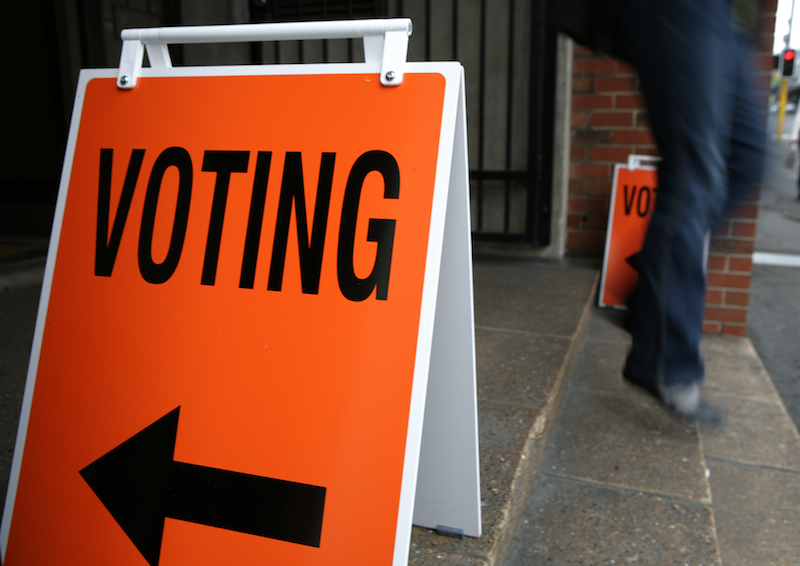
Scholar argues that federal campaign laws need to be updated to reflect both legal and social changes.
In November 2016, a purported group called “Heart of Texas” posted an event on Facebook to be held just three days before the national election. “Get Ready to Secede,” the event posting proclaimed.
But Heart of Texas was not a group of Texans who wanted to “say a strong NO to the establishment robbers,” as the announcement stated. Instead, Heart of Texas was a Russian operative who posted the announcement on Facebook in an attempt to influence the 2016 election.
Facebook reportedly ran over 3,000 ads that originated at a Russian troll farm during the 2016 presidential campaign, including the call for Texas’s secession. One legal scholar argues that the 2016 election—Russian ads and all—shows why federal election laws are ineffective and need to be updated.
In a recent paper, Anthony Gaughan of Drake University Law School explains that current campaign finance law rests on four pillars: limits on the contributions individuals and organizations can make to campaigns and political parties; bans on foreign donations; disclosure of the identity of all campaign contributors; and the Federal Election Commission’s (FEC) enforcement of the first three pillars.
When Congress passed the current set of campaign finance laws, it aimed not only to decrease the role of money in elections but also to avoid the appearance—and reality—of corruption in elections. But Gaughan argues, the law’s four pillars no longer effectively achieve the goals Congress intended to achieve. He says that the 2016 election exposed just how much the current law falls short.
For example, contribution limits, implemented to keep a politician’s success from hinging on fundraising ability, actually hurt lesser-known candidates in 2016, Gaughan argues. Because celebrity candidates already have name recognition and a social media following that lesser-known candidates do not, lesser-known candidates have to work harder to get the same publicity celebrity candidates get for free. After all, Donald Trump received an estimated $6 billion in free media coverage throughout his campaign, not to mention the value he enjoyed from being able to reach out to over 13 million Twitter followers.
Gaughan also contends the ban on foreign contributions is “both too weak and too vague.” The ban did not keep Russia from giving the Trump campaign an incredible non-pecuniary benefit by hacking the Democratic National Committee’s e-mail server and buying over 3,000 Facebook, Twitter, and Instagram ads. To be sure, the Federal Election Campaign Act bans “things of value” from foreign governments, but legal scholars disagree as to whether the Russian interference would be considered a “thing of value.”
Gaughan proposes four legal reforms that he argues would better address the problems with the 2016 election.
First, Gaughan suggests that contribution limits should be eliminated, or at least “raised dramatically.” Twelve states have no contribution limit, and he claims that there is “no evidence that states without contribution limits have a higher incidence of public corruption cases.” He argues that increasing contribution limits will “enhance the ability of candidates of ordinary means to compete against celebrity and millionaire candidates.”
For instance, when Barack Obama was running for U.S. Senate in 2004, the Bipartisan Campaign Reform Act included a provision that sextupled the contribution limit for candidates whose opponents spent $29 million of their own money. Scholars have suggested that provision contributed to Obama’s Senate victory because he raised millions of dollars from contributions at the higher level.
Second, Gaughan proposes that Congress designate 501(c)(4) organizations as “political committees,” which would require them to disclose the sources of their donations. As Justice Anthony Kennedy noted in the Citizens United v. FEC opinion, such disclosure “can provide citizens with the information needed to hold elected officials accountable, and citizens can see whether officials are ‘in the pocket’ of so-called moneyed interests.”
Third, Gaughan argues that Congress should require campaigns for federal positions to disclose within 48 hours all contacts between anyone affiliated with a campaign and representatives of foreign governments. Congress should also clarify that “other thing of value” means “an in-kind contribution such as those which campaigns traditionally pay private vendors for during elections,” Gaughan urges. He claims that these changes would help to deter foreign influence in American elections.
Finally, Gaughan argues that Congress should reorganize the FEC, which currently has six commissioners, into a seven-member commission. Gaughan suggests that an odd-number of members will prevent consistently tied votes. Plus, Congress should eliminate the partisanship balance requirement, which Gaughan claims hinders the Commission’s ability to implement innovative regulatory—or deregulatory—approaches to campaign finance.
Gaughan’s paper can be found in the Southern California Interdisciplinary Law Journal.



